
Building authority in B2B lead generation isn’t just about expertise—it’s about trust, visibility, and strategy, and Alex Makowski’s journey proves why.
Months ago, Alex Makowski reached out to me through a cold Twitter message. But instead of sending any generic outreach, he recorded a personalized four-minute video that immediately caught my attention.
At that time, we discussed how he could build the LIGHTHOUSE and become more reputable. Since then, Alex has taken action, implementing these ideas and successfully positioning himself as an authority in the industry. This article explores what he did and how he made it work.
The LIGHTHOUSE Model: A Proven Way to Build Credibility
The LIGHTHOUSE Model is an effective strategy for building authority by associating with respected industry leaders. By collaborating with established experts, you can gain trust and enhance your own credibility.
When Alex and I first spoke, I advised him to connect with well-known figures like Alex Berman, the “Cold Email King.” The strategy was clear: collaborate with industry leaders, create valuable content together, and leverage their reputation to establish his own authority.
Alex has already implemented this strategy by collaborating with industry experts. A great example of this is his podcast with Alex Berman, where they discussed the effectiveness of cold email in securing clients. In this podcast, Alex shared his exact email scripts and lead generation techniques, demonstrating his expertise in real-world applications.
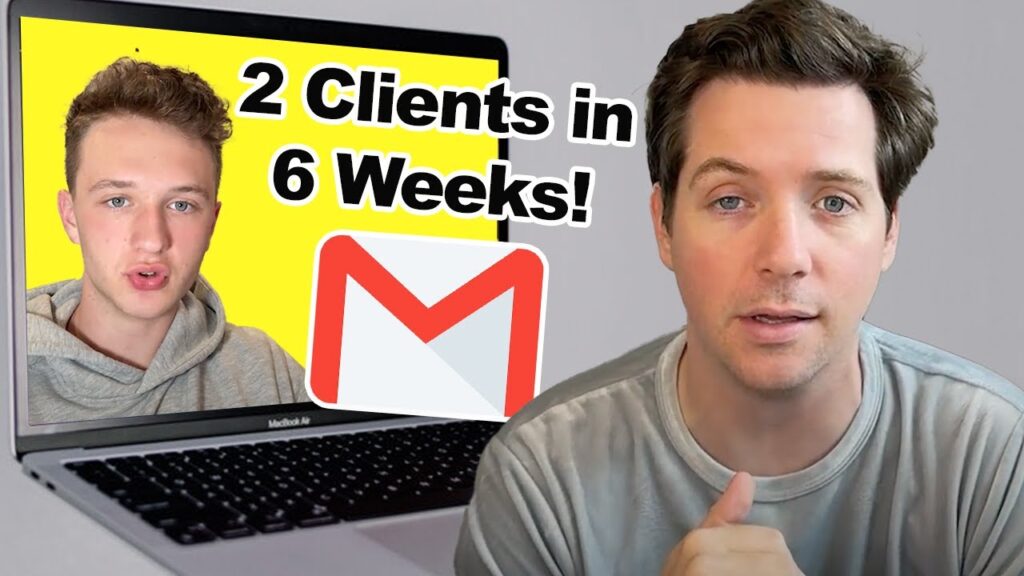
Strengthening His Personal Brand
A strong personal brand ensures that when someone searches your name, they find a professional, well-established online presence.
When we first reviewed Alex’s online footprint, we found that his content was valuable but lacked personal engagement. His YouTube videos primarily used voiceovers and animations, which made it harder for his audience to connect with him.

Steps Alex Makowski Took to Strengthen His Brand:
- Started appearing in his own videos to foster a personal connection.
- Enhanced his website to showcase his expertise, testimonials, and achievements.
- He claimed a Google Knowledge Panel, reinforcing his credibility.
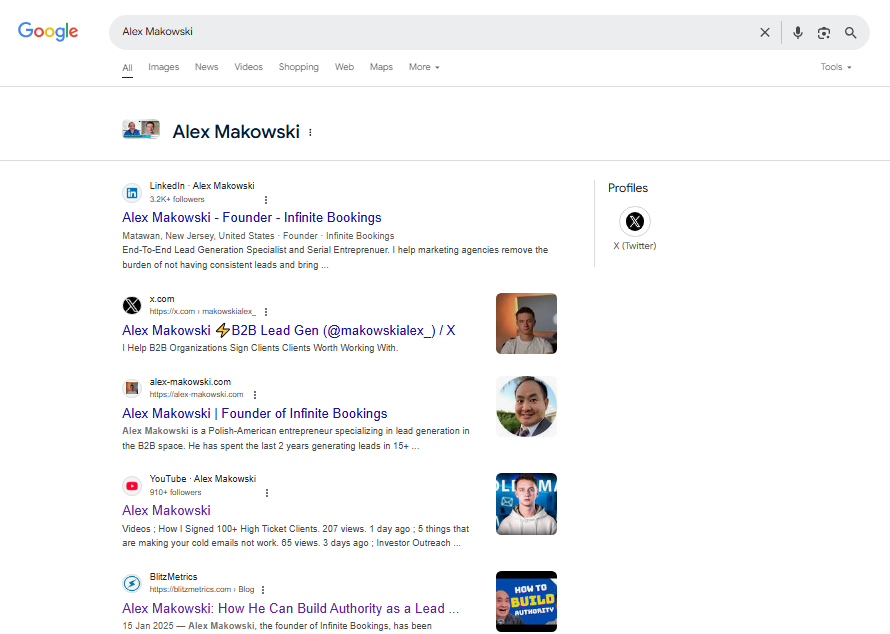
- Spoke at industry events and webinars to expand his influence. For example, I was with Alex at the DigiMarCon in NYC where Alex spoke and shared his knowledge.
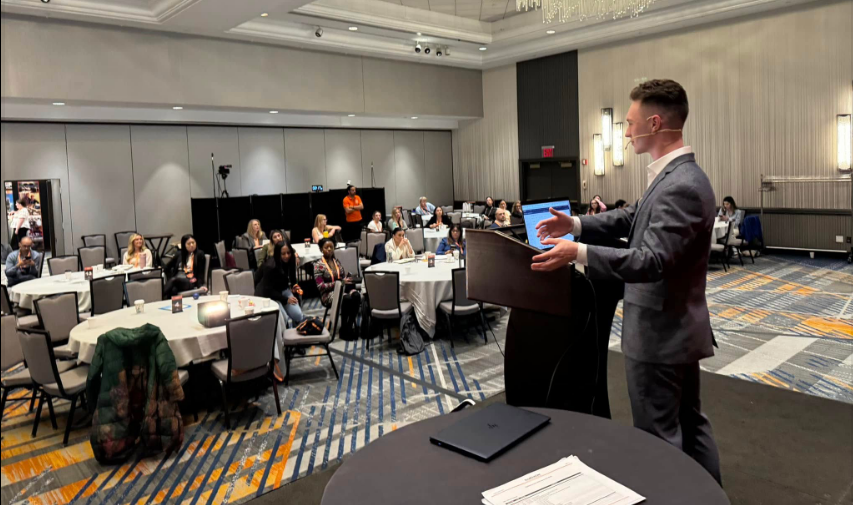
Now, when people search for “Alex Makowski,” they find a credible and authoritative leader in his field because he checked all the boxes in our personal branding checklist.
Providing Value First: The Pre-Scoring Strategy
One great idea we discussed was pre-scoring potential clients. Think of it like a report card. By checking a business’s online presence—like their Google My Business profile or website—you can show them what’s working and what needs fixing.
For example, Roger Wakefield and I have shown how powerful this approach can be in the plumbing industry.
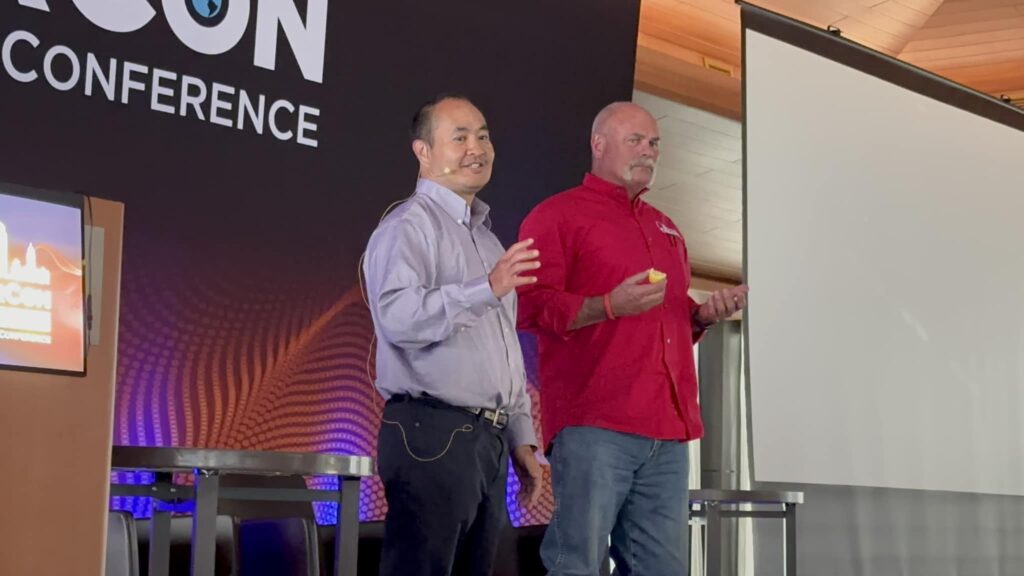
Roger and I worked together to develop AI-powered tools to analyze and pre-score plumbing businesses, identifying specific areas where they can improve, such as their Google My Business categories, website speed, and customer reviews.
This approach helps plumbers see exactly what’s working and what’s not, like missing service offerings or negative reviews that hurt their rankings. By offering this tailored analysis upfront, we demonstrate our expertise and build trust without needing to pitch aggressively.
When Alex Makowski asked how he could target different industries, I explained that the same principles apply universally. Whether it’s plumbers, pest control companies, or marketing agencies, every business appreciates personalized, actionable insights.
What’s Next for Alex Makowski?
Alex has successfully built a strong personal brand, and he has already achieved a major milestone: publishing his book on Amazon.
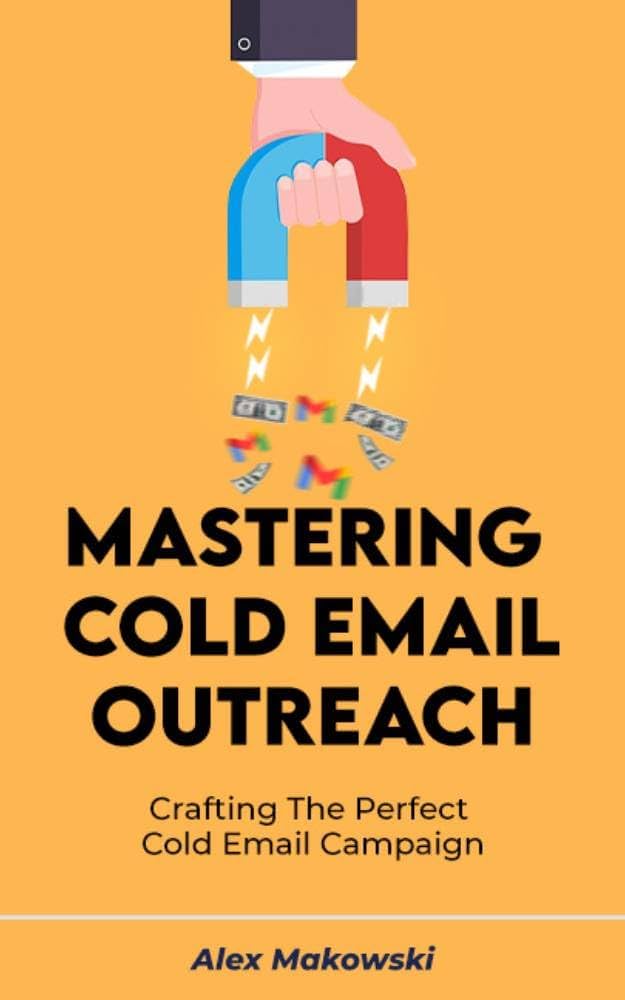
Now, the focus shifts to maximizing its impact through strategic promotion. A book is one of the most powerful tools for establishing thought leadership, and to ensure it reaches the right audience, we will implement various promotional strategies, including:
- Leveraging social media marketing to engage potential readers and industry professionals.
- Utilizing email outreach to introduce the book to his network and key stakeholders.
- Running the Dollar-a-Day (DAD) ad strategy to amplify visibility and drive consistent traffic to his book listing.
- Securing podcast and webinar appearances where Alex can discuss key insights from the book and reinforce his expertise.
With these efforts, Alex will continue solidifying his position as a leading authority in lead generation while expanding his influence even further.
Key Takeaways from Alex Makowski’s Success
Alex’s journey from aspiring expert to recognized industry leader highlights important lessons:
- Work with Industry Leaders – Collaborating with trusted figures accelerates credibility.
- Ensure Online Visibility – A professional website, a Google Knowledge Panel, and high-quality content improve discoverability.
- Offer Value First – Providing insights before pitching builds stronger relationships.
- Authenticity Builds Trust – Appearing in videos, sharing personal experiences, and engaging with the audience fosters credibility.
- Repurpose Content Strategically – Turning one piece of content into multiple formats maximizes reach and influence.
Alex’s success is proof that with the right strategies, anyone can transition from emerging to established in their industry.
Want to learn more about personal branding? Check our personal branding training.
